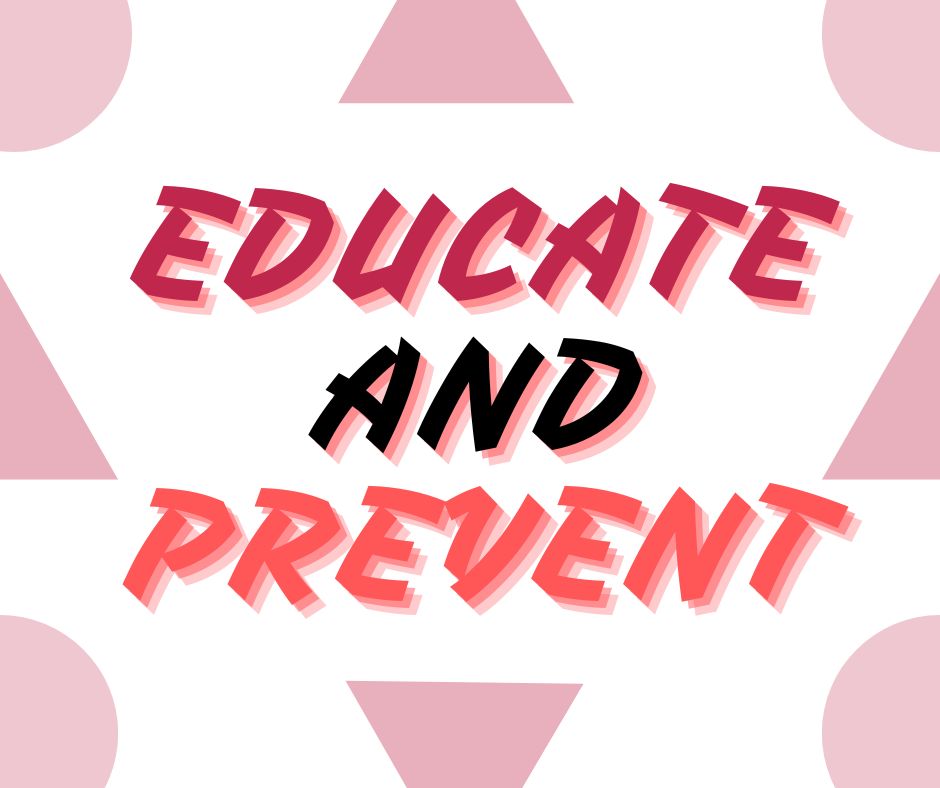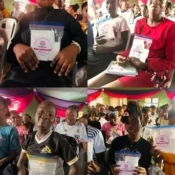
Educate, Empower, Prevent: Strategies Against Teen Pregnancy and Period Poverty
Introduction
Teenage pregnancy and period poverty are two deeply intertwined challenges that disproportionately affect adolescent girls, especially in low-income and underserved communities. While often discussed separately, the two issues feed into one another, creating a cycle that limits young girls’ choices, futures, and freedoms. At the heart of this issue lies a common thread: lack of access—specifically to menstrual products and reproductive education. To break this cycle, we must focus on education, empowerment, and prevention.
Understanding Teenage Pregnancy
Causes of Teenage Pregnancy
Teenage pregnancy stems from a range of factors, with limited access to accurate, comprehensive sex education being one of the most pressing. When adolescents are not taught about their bodies, contraception, and healthy relationships, they’re left vulnerable to misinformation and unplanned pregnancies. Cultural pressures, early marriage, poverty, and lack of healthcare access further fuel the crisis.
Consequences of Teenage Pregnancy
The ripple effects of teenage pregnancy are profound. Young mothers often face:
- Health risks due to underdeveloped bodies.
- Educational setbacks, as many drop out of school.
- Economic instability, limiting job prospects.
- Social stigma, reinforcing cycles of shame and silence.
Unpacking Period Poverty
What is Period Poverty?
Period poverty is the inadequate access to menstrual hygiene products, facilities, and education. It’s not just about pads or tampons, it’s about dignity, opportunity, and equity. In many regions, girls miss school during their periods because they cannot manage menstruation safely and privately.
Impacts of Period Poverty
- School absenteeism and dropouts, directly affecting educational attainment.
- Poor menstrual hygiene, leading to infections and long-term health problems.
- Psychological distress, such as shame, embarrassment, and isolation.
Crucially, period poverty limits girls’ autonomy over their bodies. When menstruation is stigmatized and ignored in educational settings, girls are denied critical information about their reproductive health.
The Connection Between Menstrual Inequality and Teenage Pregnancy
The relationship between period poverty and teenage pregnancy is stark yet often overlooked. When girls cannot afford menstrual products, some may engage in transactional sex to afford them, increasing the risk of unintended pregnancy and sexually transmitted infections. Moreover, without proper menstrual and sexual education, girls are less likely to understand their reproductive cycles, limiting their ability to make informed choices about contraception and sexual health.
This dangerous intersection makes it clear that solving period poverty is an essential strategy in reducing teenage pregnancy.
Tips For Prevention
Comprehensive Sexual Education
Implementing inclusive, age-appropriate sexual education that includes information about menstruation, consent, contraception, and gender equality can dramatically reduce teen pregnancies. This education must begin early and be reinforced through all school years.
Menstrual Health Literacy
Schools must treat menstruation as a normal biological process and not a taboo. This means:
- Training teachers to talk about it without discomfort.
- Including menstrual health in biology and health classes.
- Creating peer-led clubs that offer safe spaces for discussion.
Empowerment Through Resources and Support
Community Engagement
Change begins at home and in communities. Parents, religious leaders, and local influencers must be involved in:
- Demystifying menstruation and reproductive health.
- Supporting initiatives that promote gender equality.
- Encouraging young women to stay in school during menstruation.
Economic Empowerment
Many girls drop out of school or fall prey to exploitation due to financial hardships. Providing subsidized or free menstrual products can be transformative. Additionally, offering skills training and economic opportunities ensures young women don’t feel forced into risky choices just to survive.
Prevention Through Policy and Access
Youth-Friendly Reproductive Health Services
Every adolescent should have access to:
- Confidential counseling
- Health testing and treatment
- Mobile health units in remote areas
Policy Advocacy
Governments should:
- Integrate menstrual equity into national education and health policies.
- Remove taxes on menstrual products.
- Partner with NGOs to ensure consistent distribution of sanitary products and education materials.
Conclusion
Teenage pregnancy and period poverty are not just health issues, they are social justice issues. Every adolescent girl deserves the right to manage her body with dignity, access education without interruption, and make informed reproductive choices. By educating, empowering, and investing in prevention strategies, we can rewrite the future for millions of girls worldwide.
Let us act now, not only to provide pads and lessons, but to offer freedom, opportunity, and hope.
FAQs
Q1: How does period poverty increase the risk of teenage pregnancy?
Period poverty can push girls into risky behaviors, like transactional sex, to obtain sanitary products. Combined with a lack of menstrual education, this increases vulnerability to early pregnancy.
Q2: Why is menstrual education essential in preventing teen pregnancies?
Menstrual education helps girls understand their reproductive health and cycles, empowering them to make informed decisions and avoid unplanned pregnancies.
Q3: What kind of support can schools offer?
Schools should provide free menstrual products, include menstrual and sexual health in their curriculum, and foster an open environment for discussion.
Q4: How can community leaders help?
They can normalize conversations about menstruation, advocate for resources, and encourage parents to support girls’ education and health.
Q5: What is the role of government in solving these issues?
Governments can pass laws ensuring menstrual equity, fund youth-friendly health services, and make reproductive health education mandatory in schools.
All Categories
Recent Posts
Why SDG 4 Cannot Be Achieved Without Ending Period Poverty
Tags
Give them a helping hand
Every donation fuels our mission to combat period poverty. Your generosity brings us closer to menstrual equity.
+234-909-482-1642
inquiries@blossomflow.org




